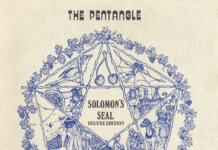The shift from hard copies, be they vinyl, CD or even cassette, to softer digital options found the music industry sleeping on the job. Many a music mogul had a long way to fall, but worryingly the working musician also began to find it hard to be recompensed; too often it proving the difference between making a living and doing it for the love of it.
It has been argued the fans gain; that bands now tour to receive an income with the records acting as a means of self-promotion, the reverse of the previous business model. Where that is the case there’s no reason why those self-same acts shouldn’t be recompensed for whatever incomes are due them from the various digital platforms out there.
However, it’s not always that easy with many an old established record company getting swallowed up by one another, an older bands’ rights getting mislaid and long ago signed contracts never accounting for new media outlets, and the trail to where the money pot lies growing cold. You should have people who look after these matters, companies that issue royalty accounts. The words “should” and “good” rhyme in opposition too often in this area. Today’s younger musicians maybe more media savvy, they know they have to work every angle; that it’s called the music business for a reason.
Not everything is bad though. Far from it according to Merlin, a company who opened their doors in May 2008 to ensure independent record companies and acts have effective access to new and emerging revenue streams and that their rights are appropriately valued and protected. In a relatively short time Merlin has been the recipient of a number of industry accolades and its CEO, Charles Caldas, recognised by Billboard as one of the 100 most influential people in the music business for two consecutive years.
The company has recently published its 2019 Membership Report & Survey and while the money reported is significant (well over $2billiob paid out to member labels to date), it is the data that comes with it is enabling independents to develop their artists in ways that would have previously been impossible without added infrastructure, such as an international network of offices.
Featuring interviews with the labels behind the likes of Mudhoney, Mötley Crüe and Soundgarden, the report is packed with examples of labels taking advantage of consumption data to access opportunities beyond streaming, such as collaborating with local artists in new territories. It sheds light on how the digital age is transforming how music gets made and who it reaches.
The report can be read in full by clicking here.


















